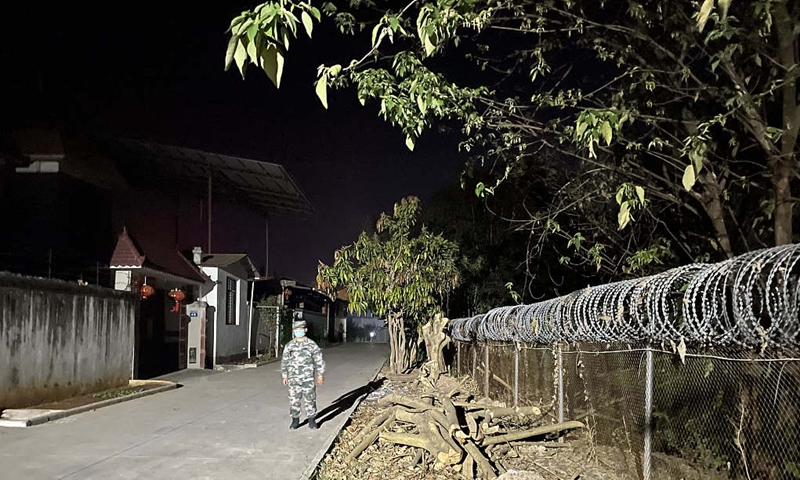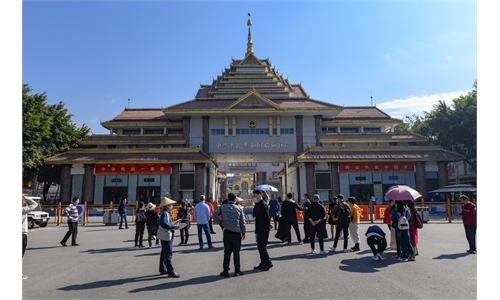Iron wire on China-Myanmar border built during virus spike in Sep 2020, prevents illegal border crossing amid COVID-19 resurgence

File photo: VCG
Pictures and videos of the walls made of iron wire standing along the border line between China and Myanmar have gone viral in recent days as the sudden spike of COVID-19 cases in some border cities of Southwest China's Yunnan Province has attracted national attention on strengthening epidemic prevention from overseas.
Yunnan reported eight confirmed domestic COVID-19 cases, and another nine imported cases in July. The eight domestic ones were detected in Ruili, a city bordering Myanmar that has witnessed the most domestic confirmed cases of COVID-19 in China since Monday and imposed a lockdown.
In recent days, pictures and videos of iron wire walls standing in border cities in Yunnan have attracted Chinese netizens' attention with some saying that "these are firewalls built over one night to prevent imported cases from spreading." Some pictures taken at night showed the iron wire walls were built along the long borderline between China and Myanmar.
The Global Times learned from an official of the Ruili government who asked for anonymity that the walls were not built recently. In fact, they were built since the first lockdown in Ruili at the end of September 2020. Besides the iron wire, there are cameras on the walls to prevent illegal border crossings.
The city also arranged for staff to patrol along the walls. Cameras on the walls caught people trying to climbing over, and those found doing so would be detained, said the official, noting that some villagers used to help with illegal border-crossing for money. But with the implementation of strict prevention measures and popularizing of law among villagers, few people will take the risk.
Ruili continued to strengthen border control measures. Illegally crossing the national border will be severely punished, and stowaways and those who organize, assist or shelter them will face severe punishment as well, Zhai Yulong, secretary of the Ruili Committee of the Communist Party of China, said at a conference on July 7.
Mangshi, a county about 100 kilometers from Ruili, had arrested a villager in June for smuggling people across the border using his motorcycle, according to a release from the Mangshi government on July 5.
Ruili and Myanmar share a 170-kilometer border. Ruili, a city with 210,000 permanent residents, is the China-Myanmar port with the largest flow of people, vehicles and goods. In 2019, Ruili's checkpoints cleared a total of 20.63 million passenger trips, accounting for almost half of the inbound and outbound traffic in Yunnan Province.
The sudden spike in Ruili marked the fourth time the city has been hit by the COVID-19 epidemic, and its third time to impose lockdown measures to contain a resurgence. The long border and Delta virus strain that is widespread among South Asian countries have contributed to the epidemic resurgence in Ruili.
Alarmed by Ruili's epidemic, other border cities in Yunnan have also tightened border prevention and control measures. The iron-wire walls in many border cities in Yunnan have been lit up at night with 24-hour patrols arranged, which have greatly increased the difficulty for illegal border crossings, a civil servant working along the borderline told the Global Times.
Southeast Asian countries are struggling with the new wave of COVID-19 with many saw record high number of confirmed cases in the past days. For example, with new variants spreading across Myanmar, daily infections have set record highs this week, pushing total fatalities to almost 3,600, triggering wider stay-at-home orders and travel restrictions, The Strait Times reported.

